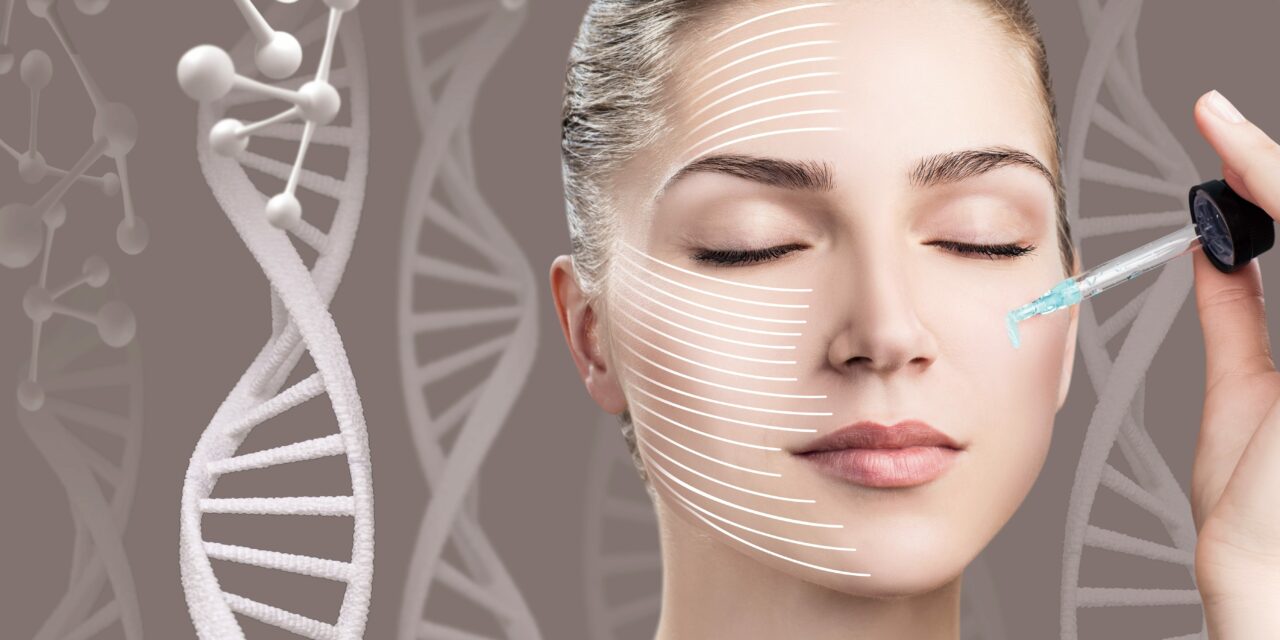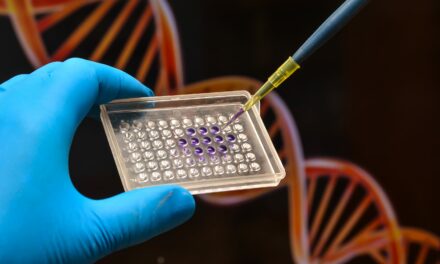Genomic insights are making it possible to tailor treatments to individual genetic profiles, enhancing collagen and elastin preservation.
By understanding an individual’s genetic makeup, dermatologists can develop tailored regimens that specifically address the preservation of collagen and elastin—key proteins that maintain skin’s elasticity and firmness.
Collagen and elastin are structural proteins that provide skin with strength and elasticity. Collagen, the most abundant protein in the skin, forms a scaffold that gives skin its firmness. Elastin, as the name suggests, allows the skin to return to its original shape after stretching or contracting.
As we age, the production of these proteins decreases, leading to sagging, wrinkles, and a loss of youthful appearance. Environmental factors like UV exposure and pollution can accelerate this process. However, genetic factors also play a significant role in how quickly these proteins degrade and how well the skin can regenerate them.
Genetic Determinants of Skin Aging

Genomic testing can identify specific genetic variations that influence the skin’s aging process. Key genes involved include:
- COL1A1 and COL1A2: These genes are responsible for the production of type I collagen, which is crucial for skin firmness.
- ELN: This gene encodes elastin, essential for skin elasticity.
- MMP1: This gene encodes an enzyme that breaks down collagen. Variants in this gene can increase the rate of collagen degradation.
- SOD2 and CAT: These genes are involved in antioxidant defense, protecting the skin from oxidative stress that accelerates aging.
Benefits of Genomic Testing in Anti-Aging Skincare
- Customized Product Selection: Genomic insights allow dermatologists to recommend products that target specific genetic weaknesses. For instance, individuals with a variant in the MMP1 gene might benefit from products that inhibit collagenase activity.
- Enhanced Efficacy: Personalized regimens are more effective because they are based on the individual’s unique genetic profile. This ensures that the skincare products address the root causes of aging rather than just the symptoms.
- Preventive Care: Knowing one’s genetic predisposition allows for early intervention. For example, someone with a high risk of collagen degradation can start using collagen-boosting products earlier to slow down the aging process.
Designing a Personalized Anti-Aging Regimen

- Genetic Testing: Patients begin with a simple genetic test, typically involving a saliva or cheek swab sample. This sample is analyzed for genetic markers related to skin aging.
- Data Interpretation: Dermatologists interpret the genetic data to identify specific risks, such as reduced collagen production or increased oxidative stress.
- Tailored Recommendations: Based on the genetic analysis, a personalized skincare regimen is developed. This may include:
- Collagen-Boosting Products: Peptides, retinoids, and growth factors to stimulate collagen production.
- Antioxidant Serums: Vitamin C, E, and ferulic acid to protect against oxidative damage.
- Elastin-Preserving Treatments: Ingredients like copper peptides and hyaluronic acid to support elastin integrity.
- Lifestyle Adjustments: Recommendations may also include dietary changes, such as increased intake of antioxidants, and lifestyle modifications to reduce UV exposure and stress.
Case Study: Successful Implementation
Consider a patient, Maria, who is concerned about early signs of aging. Genomic testing reveals that she has a variant in the COL1A1 gene associated with lower collagen production and a variant in the SOD2 gene indicating reduced antioxidant defense.
Based on this information, her dermatologist prescribes a regimen that includes a peptide-rich serum to boost collagen, an antioxidant serum to combat oxidative stress, and a retinoid cream to stimulate collagen synthesis. Additionally, Maria is advised to incorporate foods rich in antioxidants, such as berries and green tea, into her diet.
Over six months, Maria notices a significant improvement in skin firmness and a reduction in fine lines, demonstrating the efficacy of her personalized anti-aging regimen.
Final Thoughts
Tailoring anti-aging skincare through genomic testing represents a paradigm shift in dermatology. By aligning treatments with an individual’s genetic profile, dermatologists can offer more precise, effective, and preventative care. This approach not only enhances the efficacy of anti-aging treatments but also improves overall skin health and patient satisfaction.
Photo 133997739 | Cosmetic © Dmitry Kotin | Dreamstime.com




